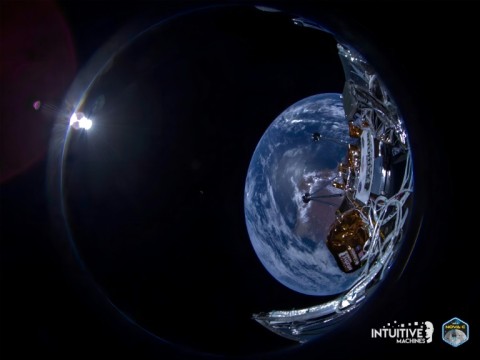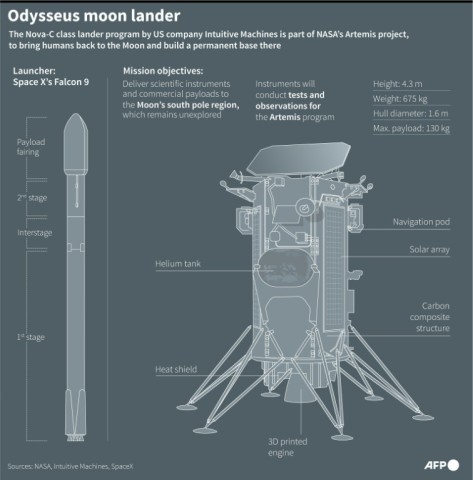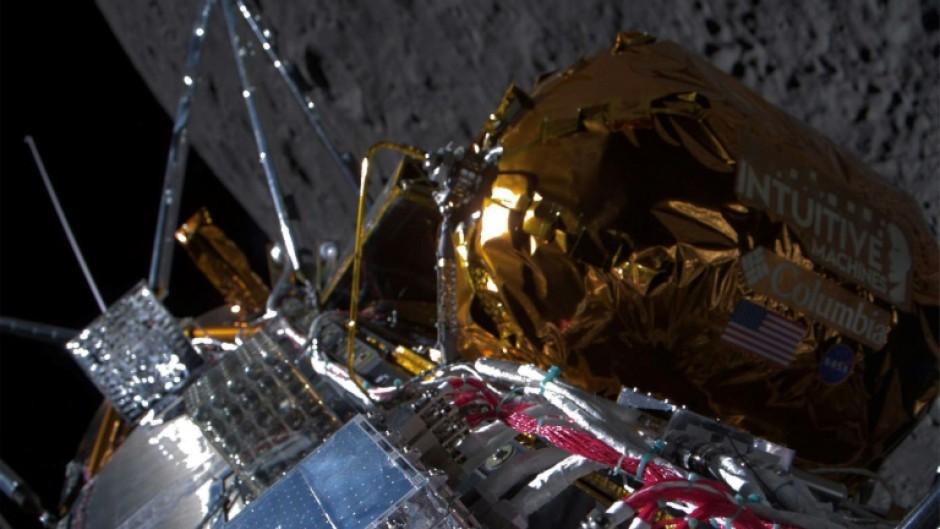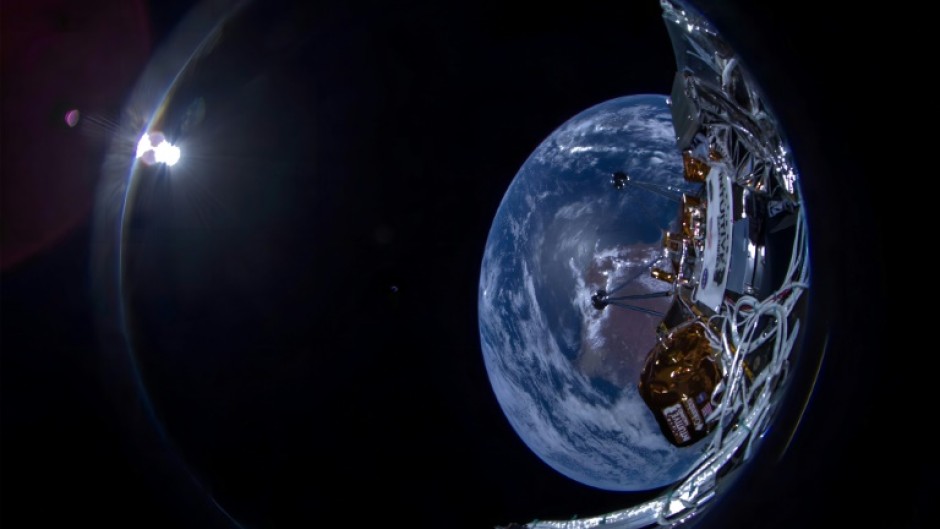A Houston-based company is set Thursday to land America's first spaceship on the Moon in more than 50 years, part of a new fleet of NASA-funded, uncrewed, commercial robots meant to pave the way for astronaut missions this decade.
If all goes well, Intuitive Machines will guide its hexagon-shaped lander Odysseus, currently orbiting at approximately 60 miles (92 kilometers) from the surface, to a gentle touchdown in a puff of dust near the lunar south pole at 2230 GMT.
Flight controllers are expected to confirm landing around 15 seconds after the milestone is achieved, with the event live streamed on the company's website.
As the vehicle approaches the surface, Odysseus will shoot out an external "EagleCam" that captures images of the lander in the final seconds of its descent.
A previous moonshot by another US company last month ended in failure, raising the stakes to demonstrate that private industry has what it takes to repeat a feat last achieved by NASA during its manned Apollo 17 mission in 1972.
Scott Pace, director of the Space Policy Institute at George Washington University told AFP that the US was rebuilding its capacity to explore the Moon after its decades-long absence.
"There's often a prejudice that says, we did it in the past, why can't we do it now?" said Pace, a former member of the National Space Council.
"Each generation has to learn how to do things," he added. "You have a leg up, you understand the technology, the problems and so forth. But that's all in books. That's not flight tests. That's not flight experience, where you know it in your fingertips."
- Lunar south pole -

Odysseus launched on February 15 on a SpaceX Falcon 9 rocket and boasts a new type of supercooled liquid oxygen, liquid methane propulsion system that allowed it to race through space in quick time.
Its destination, Malapert A, is an impact crater 300 kilometers (180 miles) from the lunar south pole.
NASA hopes to eventually build a long-term presence and harvest ice there for both drinking water and rocket fuel under Artemis, its flagship Moon-to-Mars program.
Instruments include cameras to investigate how the lunar surface changes as a result of the engine plume from a spaceship, and a device to analyze clouds of charged dust particles that hang over the surface at twilight as a result of solar radiation.
It also carries a landing system that fires laser pulses, measuring the time taken for the signal to return and its change in frequency to precisely judge the spacecraft's velocity and distance from the surface, to avoid a catastrophic impact.
- Exclusive club -

The rest of the cargo was paid for by Intuitive Machines' private clients, and includes 125 stainless steel mini Moons by the artist Jeff Koons.
NASA paid Intuitive Machines $118 million to ship its hardware under a new initiative called Commercial Lunar Payload Services (CLPS), which it created to delegate cargo services to the private sector to achieve savings and stimulate a wider lunar economy.
The first, by Pittsburgh-based Astrobotic, launched in January, but its Peregrine spacecraft sprung a fuel leak and it was eventually brought back to burn up in Earth's atmosphere.
Spaceships landing on the Moon have to navigate treacherous boulders and craters and, absent an atmosphere to support parachutes, must rely on thrusters to control their descent. Roughly half of the more than 50 attempts have failed.
Until now, only the space agencies of the Soviet Union, United States, China, India and Japan have accomplished the feat, making for an exclusive club.


